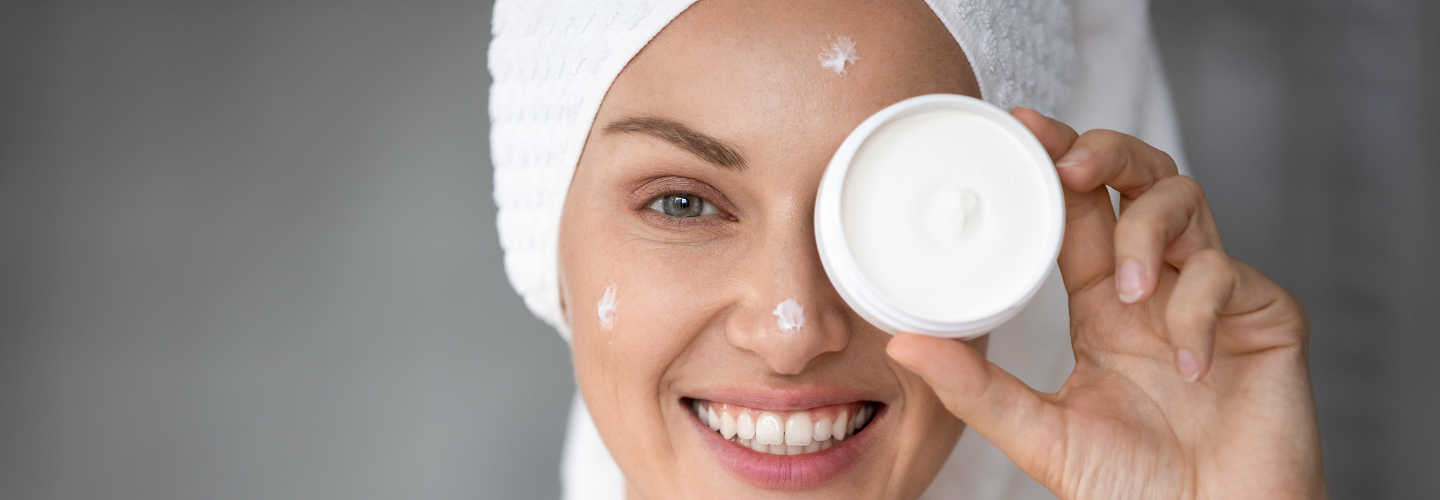Dehydrated skin can look dull, irritated, and flaky. Sometimes, it comes with itchiness and more obvious fine lines. To restore your skin’s moisture balance, you can follow many simple yet effective dehydrated skin solutions!
Understanding Dehydrated Skin
As much as you want your skin to remain youthful and glowing, there will always be conditions that may affect the way your skin appears. If you have dry and itchy skin accompanied by a flaky appearance, you might be facing skin dehydration.
The skin contains a certain amount of water that helps it remain plump and healthy. However, there are times when the water content depletes, leading to dehydrated skin. When this happens, the skin is more easily irritated and signs of aging are more apparent.
Dehydrated skin is often interchanged with the term dry skin. If dehydrated skin refers to a lack of moisture content, dry skin pertains to a lack of natural oils or sebum. In skin dehydration, the body loses more fluid than what is taken in. For example, too much fluid loss from sweating after an intensive exercise and not replenishing it by drinking water. Or, dehydration can also happen when excreting too much urine from drinking coffee and diuretics.
Furthermore, skin dehydration can be caused by other external factors. Air conditioning can deplete the humidity in the air, causing dehydrated skin. Similarly, prolonged hot showers and harsh skincare and soaps could potentially cause dehydrated skin.
So, what symptoms of dehydrated skin should you look out for?
-
Itchy skin. When the skin loses moisture, it becomes easily irritated. So, dehydrated skin usually feels consistently itchy.
-
More obvious fine lines and wrinkles. Signs of aging appear more visible in dehydrated skin. The lack of moisture makes the skin less bouncy and emphasizes the appreciation of lines and wrinkles.
-
Dullness and darker under-eye circles. The skin beneath the eyes is thinner and more fragile. As the skin loses moisture, this area’s appearance shifts to a more sunken and darker look.
The skin is not the only organ that suffers due to lack of moisture. During extreme conditions, dehydration can lead to an actual medical problem. Severe dehydration can lead to symptoms like lightheadedness, fainting, dizziness, and general weakness of the body.
Before things take a turn for the worst, it is best to avoid issues with dehydration during its early stages. You can do a simple evaluation of your skin to determine if it is dehydrated. Lightly pinch a skin around the cheek area. If your skin does not bounce back to its original shape after letting go, it may be dehydrated. This can be the first indication of dehydrated skin. When in doubt, and just to be safe, consult a dermatologist to help you confirm your skin condition.
Skin Care Tips: Dehydrated Skin Solutions
Dealing with dehydrated skin can give you both short-term and long-term problems. At first, this skin condition may seem to revolve around aesthetic concerns. The flakiness and dark undereye circles may be remedied with makeup and you are good to go. However, long-term skin issues will arise including early signs of aging.
So, it would be best to incorporate healthy habits and follow appropriate skin care tips early on. Dehydrated skin solutions must involve hydrating the skin inside and out! Here are some of the tips to do so:
Avoid harsh chemicals in your skincare products
Harsh chemicals in products induce further irritation and dehydration. So, skip these and opt for mild cleansers only. Look for skincare labels saying that the product is mild, hypoallergenic, or non-comedogenic.
Furthermore, you would also need to steer away from products with too many fragrances. Their alcohol content can also contribute to stripping of the skin’s natural oils.
Re-evaluate your skincare routine
Adjust your skincare routine to fit the needs of your dehydrated skin. Add more hydrating products and skip the harsh ones.
In coming up with a skincare routine, focus on putting together a regimen that you can use consistently. Make sure that these are readily accessible in stores near you. You can also keep a gentle moisturizer handy in your bag everywhere you go for easy reapplication even if you are not at home.
How about products for skin exfoliation? Having flaky skin due to dehydration is unavoidable. However, exfoliating tools like brushes and loofas can do more harm than good. Skip these and opt for gentle chemical exfoliants containing hydroxy acids. These products will remove dead skin cells and improve the appearance of flaky skin without too much tugging and abrading of the skin.
Minimize hot showers
Heat removes the natural oils of the skin. With this concept, hot water during showers can worsen skin dehydration. As a tip, avoid extremely hot showers or keep them to a minimum. If the temperature of your surroundings allows, keep your water to a lukewarm temperature only to help maintain the skin’s moisture balance.
Here is another little tip: after your shower, dry your skin using your clean towel and while still a little damp, apply a hydrating moisturizer. This can help seal a bit more moisture onto the skin.
Try skin supplements and antioxidants
Other than hydrating products, dehydrated skin can benefit from the effects of antioxidants such as vitamins C and E. Generally, antioxidants fight off free radicals on the skin and help it repair faster. The skin can obtain a more healthy appearance and a youthful glow.
To add some of this good stuff onto your skin, you can choose creams or serums infused with antioxidants. Similarly, there are also orally ingested skin supplements that you can add to your daily diet.
Never forget to use a sunscreen
The skin’s direct exposure to sunlight further adds to its dehydration. Aside from this, UV rays from the sun can speed up skin aging, making dehydrated skin look less healthy and plump.
Add a broad-spectrum sunscreen to your skincare routine. Make sure that it contains at least SPF 30, but the higher the better! Apply sunscreen prior to exposure to the sun to minimize its harmful effects.
Sun protection also boosts the effect of your other skin care products. For example, UV rays are known to impede the effects of skin care products containing peptides and antioxidants.
Reapplication of sunscreen even boosts its effectiveness for protecting your skin. It is best to reapply sunscreen every three to four hours especially if you are always sweating or if you are out swimming. Have a small bottle of sunscreen ready in your bag so that you are ready to reapply as needed!
Use the correct hydrating moisturizer
Find the best hydrating moisturizer to add to your skincare routine. Indeed, there are many kinds of moisturizers marketed for all sorts of skin conditions. And you may get overwhelmed when choosing!
You may check out Humeda, a daily moisturizer that is safe for sensitive and acne-prone skin. Humeda has a combination of Pentavitin and Hydranov PA, which deeply hydrates the skin. These two ingredients deeply lock in moisture in the inner layers of the skin and result in high water retention. Plus, you do not need to worry as this moisturizer fits the American Academy of Dermatology criteria. Ingredients are all-natural, with maximum efficiency in moisture retention.
Do not skip on hydrating from within
As mentioned, you can also provide skin hydration from within. The water that your body takes in also contributes to how well-nourished your skin is. Internal hydration can be achieved by doing the following:
-
Whenever you expel too much water, like during an intense exercise, actively replenish your fluid. You can also drink electrolyte drinks as they contain the good nutrients that hydrate the body.
-
Add more fluid-rich food to your diet. You can never go wrong with fresh fruits, vegetables, and legumes.
-
Avoid drinking too much coffee. The caffeine content is a known diuretic. So even if you think that you are drinking fluid for the body, coffee does not hydrate you as it induces you to urinate more and expel your body’s fluids more.
-
Drink alcohol in moderation, or avoid it entirely. Similar to coffee, alcohol is also a diuretic. It pushes your body to metabolize and excrete urine faster, leading to internal dehydration.
When symptoms appear to worsen, consult a doctor. Severe dehydration needs to be treated to avoid further complications.
Conclusion
Dehydrated skin solutions come in various ways. You can always focus on building an anti-dehydration skin regimen and combine it with internal hydration like drinking lots of water. Plus, always remember to consult a doctor when needed. Dehydrated skin can be an esthetic issue for some, but severe dehydration needs medical attention.



